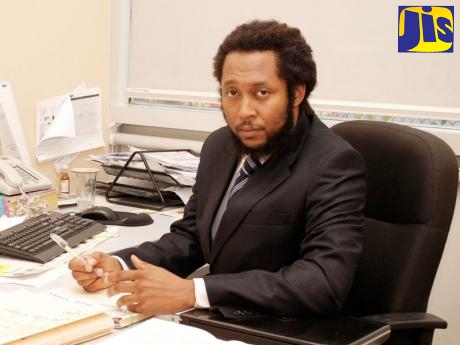JIPO Looks to Increase Access to Copyright Works by Disabled Community
By: , April 25, 2021The Key Point:
The Facts
- According to WIPO, less than 10 per cent of all published material is accessible to the visually impaired or persons with low vision.
- During the event, participants shared their experiences and perspectives as it relates to access to copyright works for the visually and hearing-impaired and how organisations in Jamaica can work together to facilitate increased access to copyright works/information for disabled persons.
The Full Story
The Jamaica Intellectual Property Office (JIPO) is looking to further amend the Copyright (Amendment) Act, 2015 to increase access to copyright works by members of the disabled community.
The objective is to bring the law into alignment with the provisions of the World Intellectual Property Organization (WIPO)-administered Marrakesh Treaty, which aims to make the production and international transfer of specially adapted books for people with blindness or visual impairments easier.
This is by establishing a set of limitations and exceptions to traditional copyright laws.
Speaking at a JIS ‘Think Tank’ on Friday (April 23), Deputy Director and Legal Counsel of JIPO, Dr. Marcus Goffe, said that Jamaica’s Copyright Act permits copying and adapting the format of copyright-protected works, to make them accessible for visually and hearing-impaired persons.
He noted, however, that for a piece of copyright-protected work to be formatted and made user-friendly for someone visually or hearing-impaired, permission must be sought from the copyright owners. This process, he pointed out, is not always quick or linear.
As such, “We want to have the Act amended to utilise the full flexibility of the [Marrakesh] treaty, particularly to allow for cross-broader transactions where people could be able to import and export these specially formatted copies for the disabled community,” Dr. Goffe said.
According to WIPO, less than 10 per cent of all published material is accessible to the visually impaired or persons with low vision.
“Copyright laws have been thought to be a hindrance for persons who are visually and hearing impaired. With this treaty, by removing requests for permission to adapt the material for members of the disabled community, it will increase access to information,” Dr. Goffe said.
Copyright and Related Rights Manager at JIPO, Shantal English, who also addressed the Think Tank, said that the entity recognises the need for more robust provisions for the disabled community.
“We recognise that access to information is important and so we want to ensure that there is a balance and that individuals from these communities also have access. There have been discussions with the disabled community and also working with the Ministry of Education’s Special Education Unit where we hear the concerns that these individuals have,” she noted.
Miss English said that JIPO, as part of its corporate social responsibility, shares information and literary works with visually impaired persons by voluntarily reading to students at the Salvation Army School for the Blind, among other groups.
JIPO is observing Intellectual Property (IP) Week from April 23 to May 2.
The entity hosted a webinar on the Marrakesh Treaty today, which was observed as UNESCO World Book and Copyright Day.
During the event, participants shared their experiences and perspectives as it relates to access to copyright works for the visually and hearing-impaired and how organisations in Jamaica can work together to facilitate increased access to copyright works/information for disabled persons.





